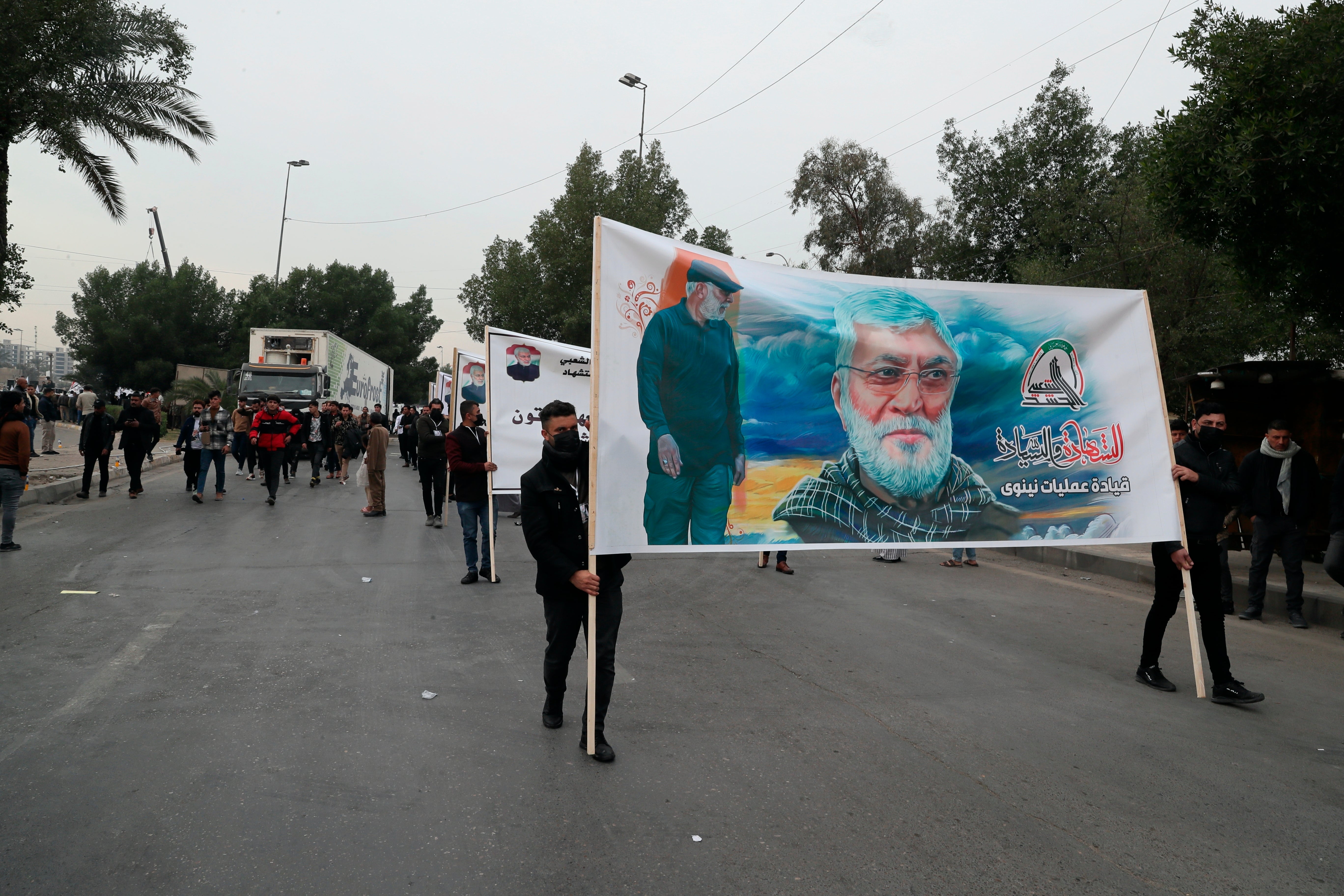Israel’s Jerusalem Post website hacked on anniversary of Iran general’s assassination
Hackers have targeted the website of an Israeli newspaper

Your support helps us to tell the story
From reproductive rights to climate change to Big Tech, The Independent is on the ground when the story is developing. Whether it's investigating the financials of Elon Musk's pro-Trump PAC or producing our latest documentary, 'The A Word', which shines a light on the American women fighting for reproductive rights, we know how important it is to parse out the facts from the messaging.
At such a critical moment in US history, we need reporters on the ground. Your donation allows us to keep sending journalists to speak to both sides of the story.
The Independent is trusted by Americans across the entire political spectrum. And unlike many other quality news outlets, we choose not to lock Americans out of our reporting and analysis with paywalls. We believe quality journalism should be available to everyone, paid for by those who can afford it.
Your support makes all the difference.Hackers targeted the website of an Israeli newspaper on Monday, the anniversary of the 2020 killing of a top Iranian general, replacing its content with an image threatening a site associated with Israel's undeclared nuclear weapons program.
No group immediately claimed responsibility for the hacking. The image posted on the Jerusalem Post's website depicts a missile coming down from a fist bearing a ring long associated with Qassem Soleimani the Iranian general killed by a U.S. drone strike in Iraq two years ago.
Also Monday, a group overseen by the British military said it had reports of a possible attack on a ship off the coast of Yemen in the Red Sea, a crucial route for international trade. Yemen remains mired in a yearslong war pitting Iranian-backed rebels against a Saudi-led coalition.
The image posted in the hack depicts an exploding target from a recent Iranian military drill designed to look like the Shimon Peres Negev Nuclear Research Center near the city of Dimona. The facility is already home to decades-old underground laboratories that reprocess the reactor’s spent rods to obtain weapons-grade plutonium for Israel’s nuclear bomb program.
Under its policy of nuclear ambiguity, Israel neither confirms nor denies having atomic weapons.
In a tweet, the Jerusalem Post acknowledged being the target of hackers.
“We are aware of the apparent hacking of our website, alongside a direct threat to Israel,” the English-language newspaper wrote. “We are working to resolve the issue & thank readers for your patience and understanding.”
The newspaper later restored its website. It noted Iran-supporting hackers previously targeted its homepage in 2020 “with an illustration of Tel Aviv burning as then-Prime Minister Benjamin Netanyahu swam" with a life preserver.
There was no immediate response from the Israeli government. The hack comes after Israel’s former military intelligence chief in late December publicly acknowledged his country was involved in Soleimani's killing.
Iran also did not immediately acknowledge the hack. However, the country has in recent days stepped up its commemorations of the slain Revolutionary Guard general. Memorial services were scheduled to be held Monday marking his death.
Meanwhile, the British military’s United Kingdom Maritime Trade Operations said it had received reports of an attack on a ship, giving its location as off the coast of Yemen, near the contested port city of Hodeida. The British military did not elaborate.
The coordinates it offered corresponded to the Emirati-flagged landing craft Rwabee, which hadn't given its location via satellite-tracking data for hours, according to the website MarineTraffic.com. An employee at the vessel's owners, Abu Dhabi-based Liwa Marine Services, told The Associated Press that the Rwabee appeared to have been the target but said they had no other information and declined to comment further. The employee did not give her name and hung up.
As the head of the Quds, or Jerusalem, Force of the Revolutionary Guard, Soleimani led all of its expeditionary forces and frequently shuttled between Iraq, Lebanon and Syria. Quds Force members have deployed into Syria’s long war to support President Bashar Assad, as well as into Iraq in the wake of the 2003 U.S.-led invasion that toppled dictator Saddam Hussein, a longtime foe of Tehran.
Soleimani rose to prominence by advising forces fighting the Islamic State group in Iraq and in Syria on behalf of the embattled Assad.
U.S. officials say the Guard under Soleimani taught Iraqi militants how to manufacture and use especially deadly roadside bombs against U.S. troops after the invasion of Iraq. Iran has denied that. Many Iranians to this day see Soleimani as a hero who fought Iran’s enemies abroad.
___
Follow Jon Gambrell on Twitter at www.twitter.com/jongambrellAP.